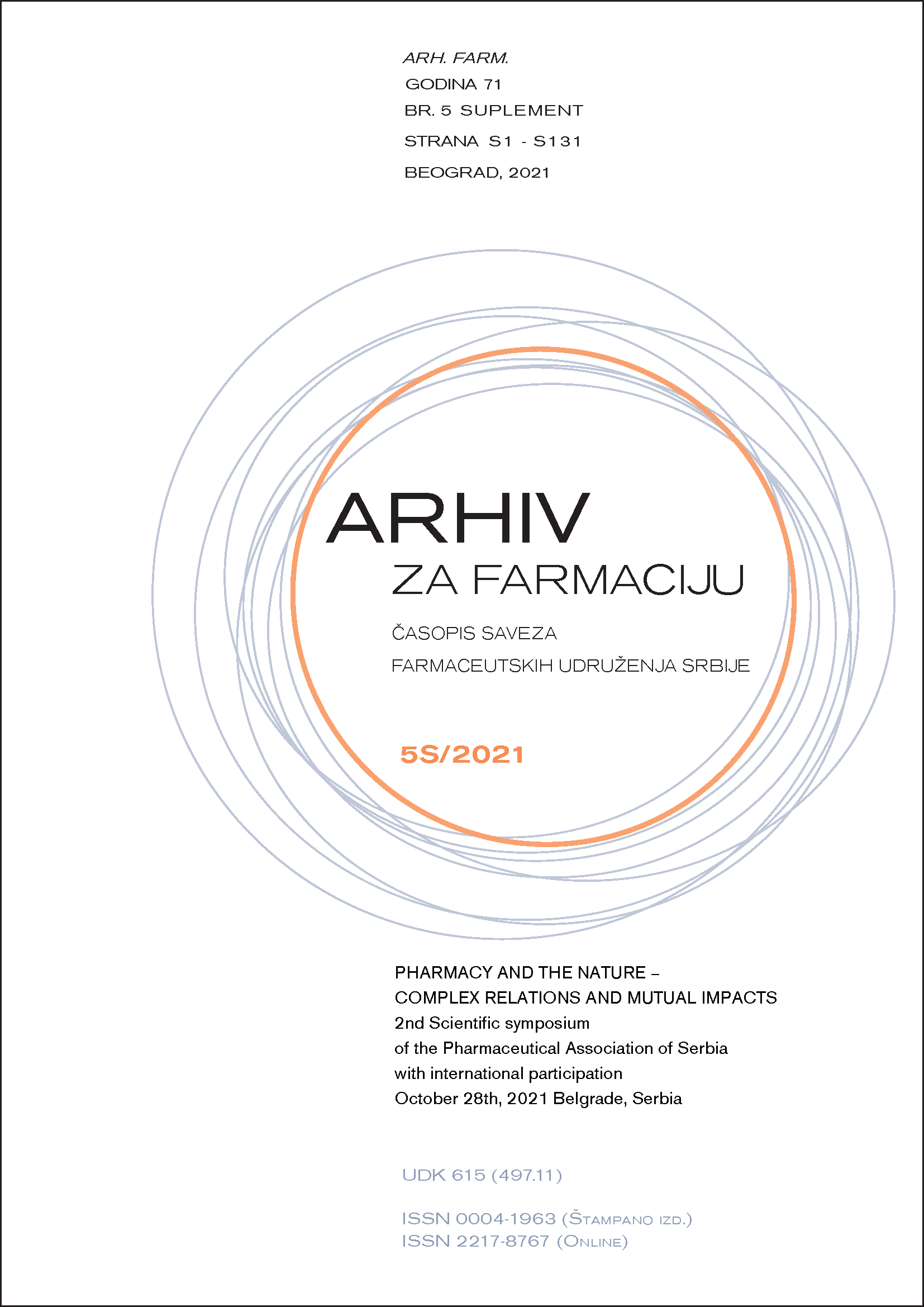OBSERVATIONAL ANALYSIS OF THERMAL WATER FROM KANJIŽA SPA AS POTENTIAL "GREEN" RAW MATERIAL FOR DERMATOCOSMETIC PREPARATIONS
Abstract
Thermal waters have certain physico-chemical characteristics that indicate their therapeutic functions. In the Special Hospital for Rehabilitation Kanjiža Spa, alkaline hydrocarbon sulfide thermomineral water is used within balneotherapy for the purpose of treatment of patients, which has not been researched from the aspect of cosmetic application so far. The aim of this study is, on the one hand, to preliminary, qualitatively investigate the potential effect of thermal water from Banja Kanjiža as a raw material for the formulation of cosmetic products, and on the other hand, based on obtained results to preliminary prove its use as a raw material in green pharmacy.
In this paper, the method of observation was used in order to look at and investigate how certain European thermal waters perform related to their composition, based on the available literature. On the other hand, there was a statistical analysis and correlation of the results of the analysis conducted with the aim to observe the thermal water from the Kanjiža Spa and five thermal waters used as raw materials for the production of cosmetics/dermatocosmetics of several European spas, such as Avene, La Roche Posay, Uriage, Vichy and Jonzac.
The result of the correlation in the case of Water-2 is 0.45, ie. the similarity of thermal water Water-2 and thermal water from Kanjiža in this mathematical analysis (Jaccard and Kosinus index) is 45%, which is the greatest similarity compared to the others. Based on a review of the literature and statistical comparison of the composition of thermal waters (Figure 1), we can assume that the thermal water from Kanjiža Spa, similar to European thermal waters to which it was compared, could have potential antimicrobial, keratoplastic, anti-inflammatory and antioxidant (1, 2) effects. It is also thought to be able to stimulate fibroblast activity, which would increase the amount of fibers in the dermal layer of the skin and show a potential anti-aging effect (3).
If the manufacturing of cosmetic products incorporated thermal Kanjiža water instead of purified water, the ecological footprint of the thus made cosmetic product can be reduced. It is assumed that its use could reduce the use of preservatives and antioxidants or cosmetic active substances (antimicrobial agents, keratolytics, or fibroblast proliferators), which themselves can be harmful to nature.

